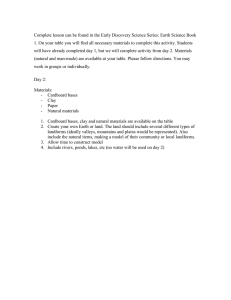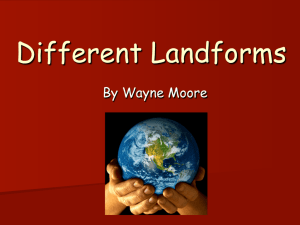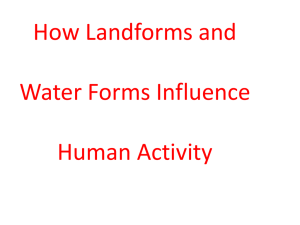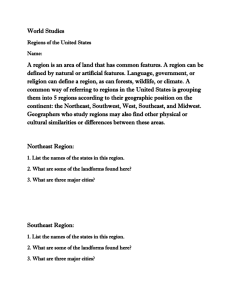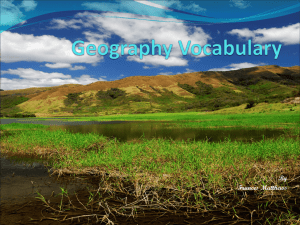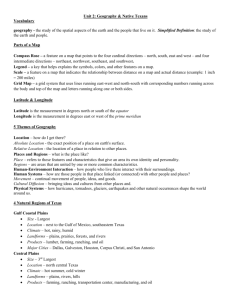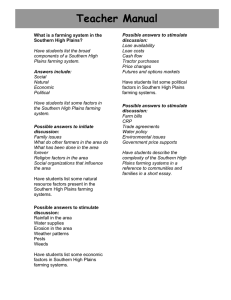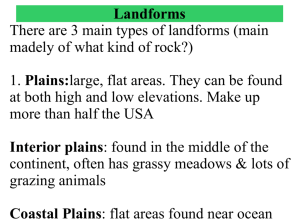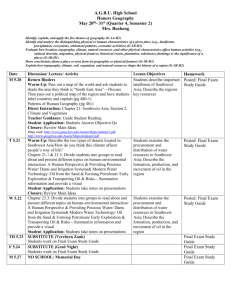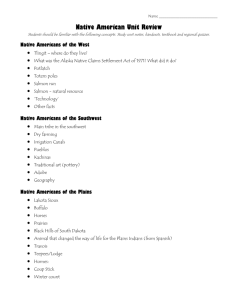Unit 1A Summative Assessment
advertisement
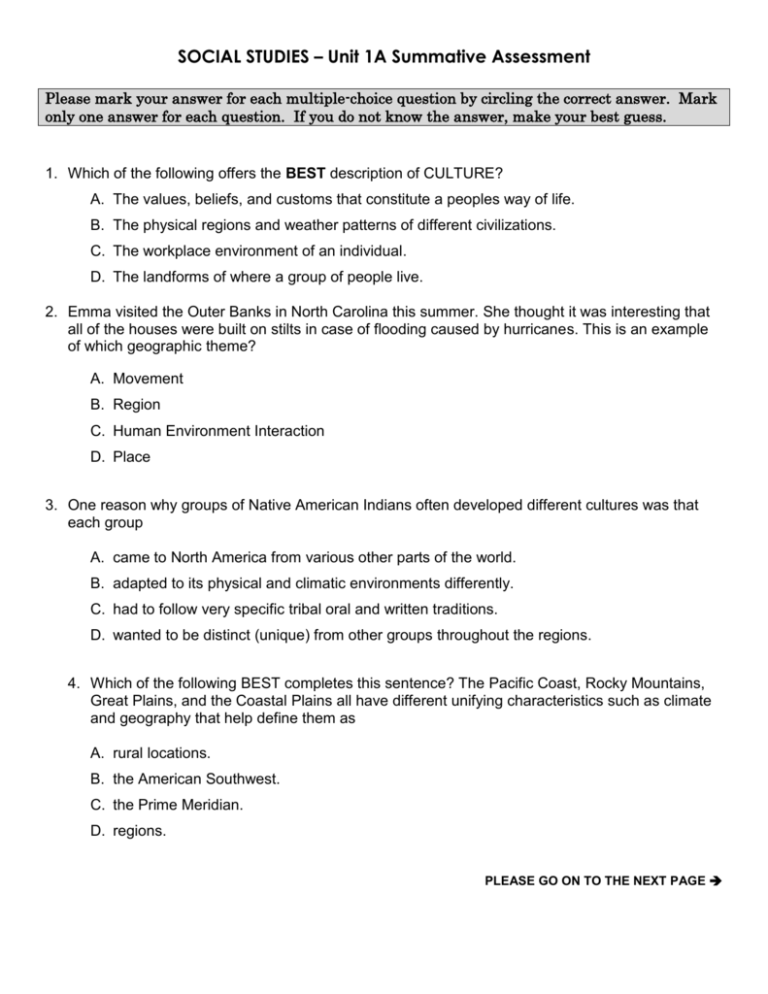
SOCIAL STUDIES – Unit 1A Summative Assessment Please mark your answer for each multiple-choice question by circling the correct answer. Mark only one answer for each question. If you do not know the answer, make your best guess. 1. Which of the following offers the BEST description of CULTURE? A. The values, beliefs, and customs that constitute a peoples way of life. B. The physical regions and weather patterns of different civilizations. C. The workplace environment of an individual. D. The landforms of where a group of people live. 2. Emma visited the Outer Banks in North Carolina this summer. She thought it was interesting that all of the houses were built on stilts in case of flooding caused by hurricanes. This is an example of which geographic theme? A. Movement B. Region C. Human Environment Interaction D. Place 3. One reason why groups of Native American Indians often developed different cultures was that each group A. came to North America from various other parts of the world. B. adapted to its physical and climatic environments differently. C. had to follow very specific tribal oral and written traditions. D. wanted to be distinct (unique) from other groups throughout the regions. 4. Which of the following BEST completes this sentence? The Pacific Coast, Rocky Mountains, Great Plains, and the Coastal Plains all have different unifying characteristics such as climate and geography that help define them as A. rural locations. B. the American Southwest. C. the Prime Meridian. D. regions. PLEASE GO ON TO THE NEXT PAGE Location Southwest Eastern Woodlands Cultural Characteristics Used stone, straw, and clay to build their homes Made pots and other objects out of clay Grew crops such as corn and beans Built homes and other buildings out of logs, bark, and twigs Used fish and deer as important food sources Built canoes from trees Wove baskets 5. Using the chart above, answer the following question: The main cultural differences between the groups described above were primarily a result of the A. size of the group’s populations. B. amount of wealth the groups collected. C. religious ceremonies of each group. D. natural resources available in their regions. 6. The exposure of a land bridge (Beringia) between Asia and North America during the last Ice Age resulted in A. the introduction of new diseases. B. the development of farming. C. the migration of people (Paleo-Indians). D. the establishment of an a European culture. 7. Which of the following is an example of Absolute Location? A. 167 Fairway Drive, Helena, MT 59601. B. 8000 Spruce Drive, KY. C. The distance from The Denver Center for the Performing Arts, to the Pepsi Center. D. The Statue of Liberty is in New York Harbor, across from the Island of Manhattan. PLEASE GO ON TO THE NEXT PAGE 8. Which of these was a strong influence on the kind of shelters used by each Native American group? A. religion. B. wealth. C. natural resources. D. education. 9. When discussing the earliest Native Americans, all of the following are true EXCEPT: A. When large animals disappeared, Native Americans turned hunting smaller game. B. Native Americans eventually began gathering nuts and berries, as well as farming. C. Agriculture allowed early Native Americans to settle into permanent villages. D. Unable to farm or find food, hunters left North America and went back to Asia. 10. Which Map Essential is needed when determining how much gas will cost for a trip from Florence, KY to Orlando, FL? A. Title B. Compass Rose C. Scale D. Legend PLEASE GO ON TO THE NEXT PAGE 11. What are elements of culture (provide two examples) and how do they help define different societies? ____________________________________________________________________ ____________________________________________________________________ ____________________________________________________________________ ____________________________________________________________________ ____________________________________________________________________ 12. What impact does a region’s physical features and climate have on the people who live there? Give examples. ____________________________________________________________________ ____________________________________________________________________ ____________________________________________________________________ ____________________________________________________________________ ____________________________________________________________________ ____________________________________________________________________ 13. What are at least 2 of the 5 map essentials AND why are they important? ____________________________________________________________________ ____________________________________________________________________ ____________________________________________________________________ ____________________________________________________________________ ____________________________________________________________________ ____________________________________________________________________ PLEASE GO ON TO THE NEXT PAGE SOCIAL STUDIES OPEN-RESPONSE QUESTIONS Read all parts of each open-response question before you begin. Write your answers to the openresponse questions in the space provided in this test booklet. Write your answer to question 14 in the space provided on the next page. Culture Background: We’ve studied the 6 primary physical regions in the United States. Each region has its own unique climate, landforms, plants, animals, and other natural resources. Taking this information into consideration, answer the prompt below. Prompt: Although Native Americans in North America had many things in common, there were also many differences between the tribes. Compare and contrast two Native American groups, explaining how they adapted to their environments to develop their own unique cultures. 16. STOP!
